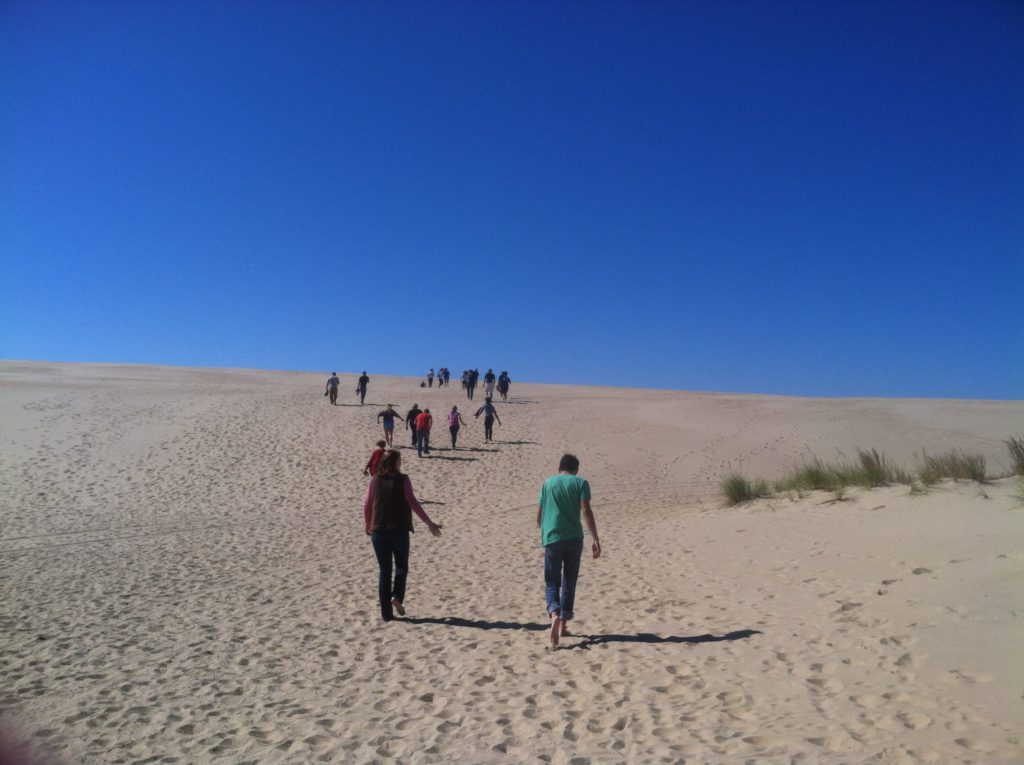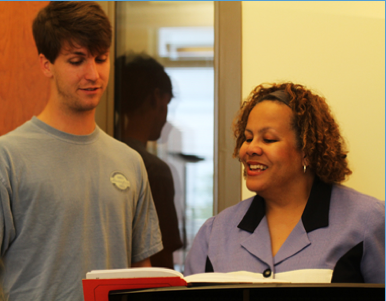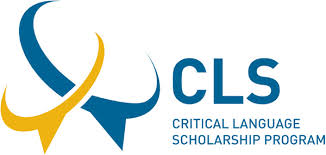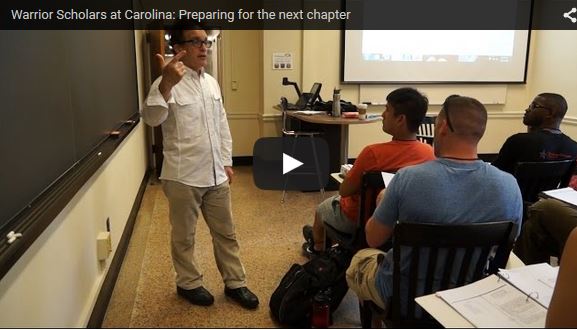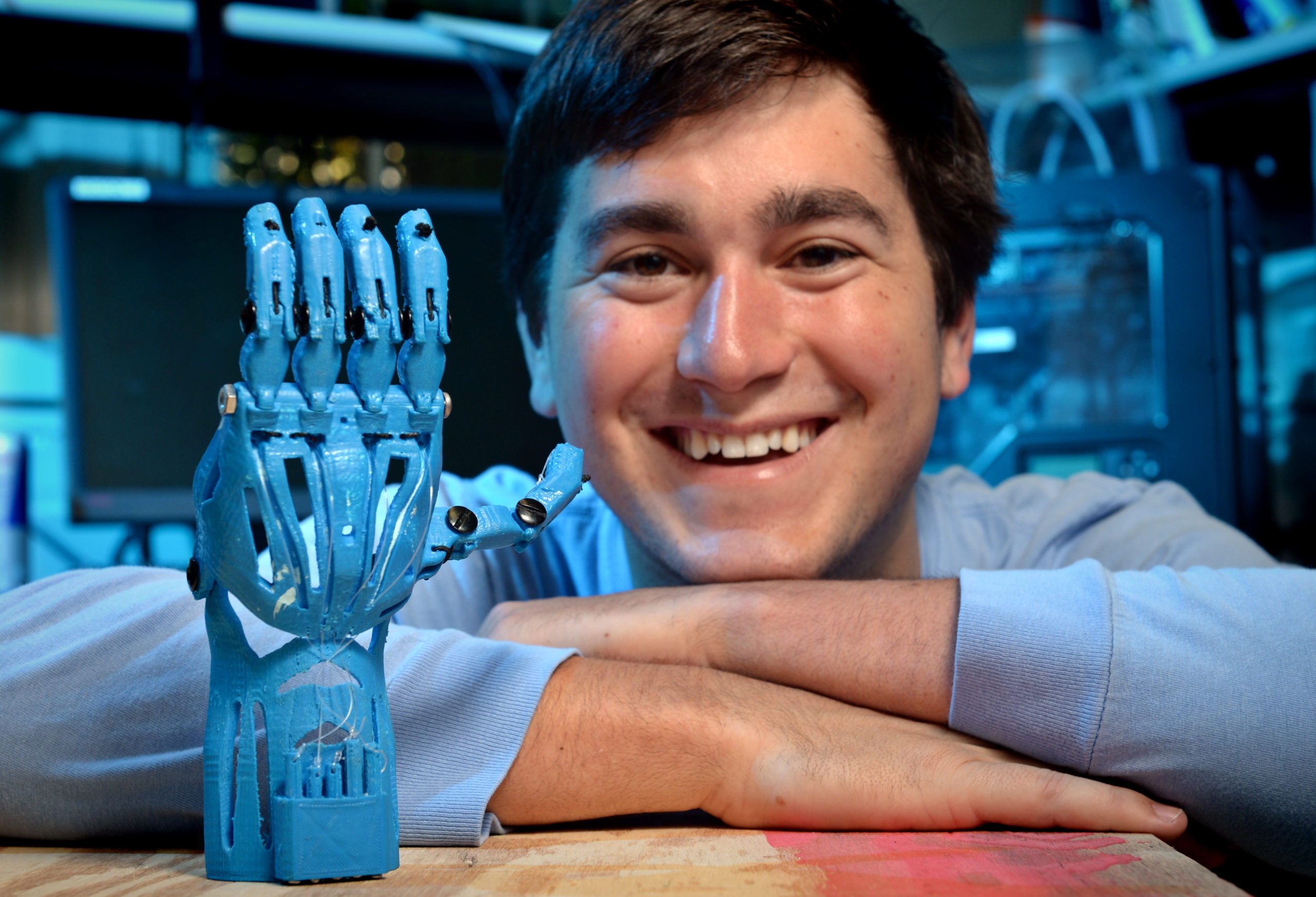
Editor’s note: Jeff Powell’s story was featured on CBS This Morning on Nov. 24. Watch the video.
Jeff Powell has been building things for as long as he can remember.
“I played with Legos all the time when I was young,” he said. “I’ve always been interested in taking things apart and seeing how they work.”
Powell, a senior in biomedical engineering in the College of Arts and Sciences, recently applied that interest to help 7-year-old Holden Mora of Chapel Hill, who was born without fully formed fingers on his left hand.
Using a 3-D printer in the basement of Phillips Hall, Powell spent part of his summer designing and developing a prosthetic hand for Holden.
“Prosthetic hands costs hundreds, if not thousands, of dollars just for the most simple one,” and kids outgrow them in a year or so, he said. “Now that 3-D printing has come in, we can get a full prosthetic hand for about $20 of materials.”
When 3-D printing first began in the 1980s, the massive printers cost upwards of $100,000 and were used mostly by car manufacturers.
Fast forward 25 years and the printer has scaled down in size and can be purchased for as low as a thousand dollars. Today, 3-D printers can create everything from shoes and shirts, to prosthetic arms and hands.
The fingers of Holden’s prosthetic hand open and close as he bends his wrist. Though Holden won’t be able to use the fingers individually, his father, Peter Mora, said the hand is helping his son pick up new skills.
“He’s definitely excited about things he’s tried many times before but is now trying in a new way,” Mora said. “He’s working on learning how to tie his shoes, and he’s holding a baseball bat with two hands.”
The hand consists of 12 parts, each taking from 40 minutes to five hours to print. Powell turned to the Internet to learn how to design each piece, meeting obstacles using the printer throughout the way.
“You can have a four-hour print and get three hours into it and it fails. That’s time you’ve lost,” Powell said. “I ended up trying three different designs before I found the one that worked best for us.”
Powell is a senior from Red Oak, N.C. He’s also the design chair for the Biomedical Engineering Club on campus.
Because of his background in design, research associate professor in biomedical engineering Richard Goldberg put Powell in touch with the Mora family. Goldberg said matching students with projects like this helps put their skills to the test.
“We’re trying to get students to mobilize and address some needs outside the scope of a class—because there is a great opportunity for students to get a real-world learning experience,” he said.
Powell’s work has sparked the interest of some of his peers. With their help, Powell hopes to continue helping families in need.
“If people put in maybe 30 hours of time, all it takes is 20 bucks and you can greatly affects kids’ lives,” he said. “If it doesn’t cost anything but time, let’s do it.”
For more information, visit http://www.empowered.org/Helping-Hand-Project.
The Research Hub, a new UNC Library initiative to make the entire research life cycle at UNC more connected, collaborative and technology-enabled, is making 3-D printing more accessible on campus. A Kenan Science Library Hub features a new makerspace and 3D printing facility.
Story by Parth Shah ’15, College of Arts and Sciences
Photo by Dan Sears, Office of Communications and Public Affairs

